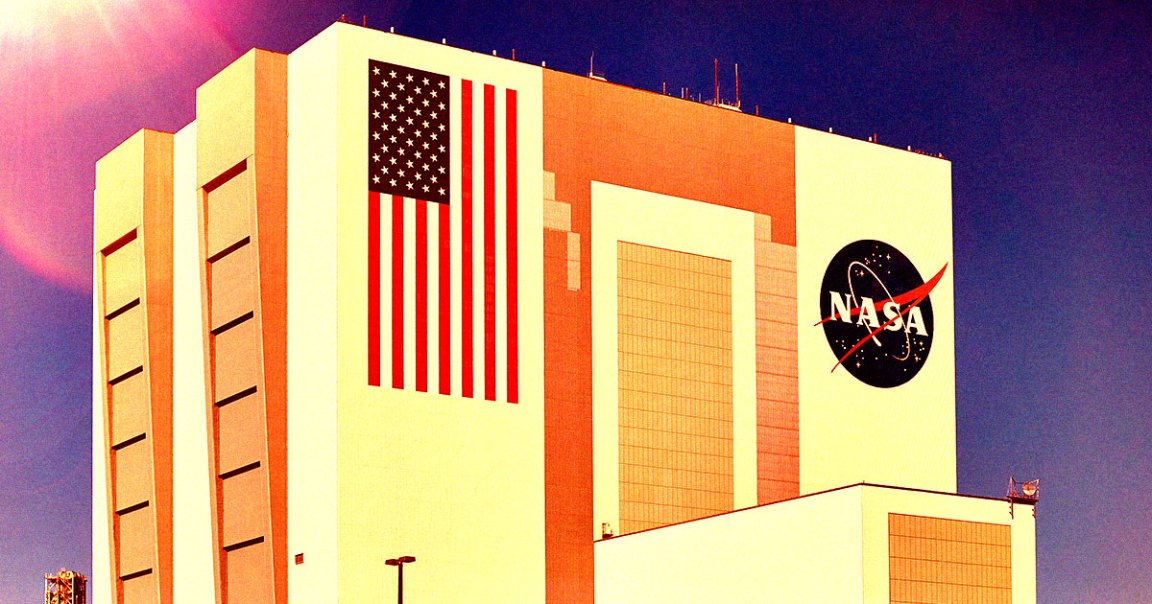
Earlier this year, the Trump administration revealed its proposed 2026 budget for NASA, a horrifying plan to chop up dozens of important science missions alongside thousands of jobs.
The proposal suggested slicing the space agency’s science budget in almost half, in “nothing short of an extinction-level event for space science and exploration in the United States,” as Planetary Society chief of space policy Casey Dreier told Ars Technica in March.
Just as predicted, the proposed cuts are proving incredibly unpopular among lawmakers. As Bloomberg reports, both Republicans and Democrats have voiced their discontent with Trump’s budget request and are working on a last-ditch effort to save NASA from certain doom.
The Senate’s appropriations committee is passing around a proposed Commerce, Justice, Science budget — which includes NASA funding — that would set the space agency’s 2026 budget at $24.9 billion, roughly in line with this year’s budget. That’s considerably more than Trump’s “skinny” $19 billion budget proposal.
“We rejected cuts that would have devastated NASA science by 47 percent and would have terminated 55 operating and planned missions,” said senator and top appropriator Chris Van Hollen (D-MD) in a statement, as quoted by Bloomberg.
A major point of contention remains NASA’s plans to send astronauts to the surface of the Moon as part of its Artemis program. The agency has been spending billions of dollars on its Space Launch System rocket and Orion spacecraft. It’s a costly plan that’s been heavily criticized by SpaceX CEO Elon Musk, who seethed earlier this year that the Artemis program is “extremely inefficient.”
Trump’s budget suggested canceling the launch platform after just three Artemis missions, which led to an outcry from lawmakers.
In its counter proposal, the Senate’s appropriation committee suggests sticking to plan A, which could face far fewer objections now that Musk has parted ways with Trump and declared war on the Republican party.
“The bill reflects an ambitious approach to space exploration, prioritizing the agency’s flagship program, Artemis, and rejecting premature termination of systems like SLS and Orion before commercial replacements are ready,” said senator Jerry Moran (R-KS), per Bloomberg.
Ripping up plans for the SLS and Orion this late in the game has proven incredibly unpopular. Senator Ted Cruz (R-TX), chairman of the Senate Committee on Commerce, Science, and Transportation, unveiled directives last month, proposing to dedicate nearly $10 billion over current levels to enhance NASA’s Artemis program, including $4.1 billion for the SLS to extend its lifespan beyond just three missions. The proposal passed as part of Trump’s so-called “Big, Beautiful Bill” last week.
Where all of this leaves Trump’s proposed budget for NASA remains to be seen. It’s particularly hard to predict now that the president has severed ties with Musk, who leads the agency’s largest private contractor.
While there’s ample enthusiasm to pad out trips into space, as well as to the Moon, NASA’s science program remains on life support.
Complicating matters is a major leadership vacuum. Earlier today, Trump announced that transportation secretary Sean Duffy — who will still keep his old job — will temporarily become NASA’s administrator after ditching Musk’s handpicked candidate last month.
The appropriations committee’s counteroffer will likely set off a fierce battle with the Trump administration over NASA’s future.
To many, the agency’s mere existence and the United States’ overall leadership in space are under threat. In a joint July 7 statement, every living former head of NASA’s Science Mission Directorate condemned the White House’s budget proposal.
“NASA science endeavors are exercises in long-term national commitment that pay dividends to the American people,” the letter reads. “Given the scale of the proposed cuts, their long-term consequences, and the potential loss of human knowledge and inspiration, we unanimously urge Congress to reject the proposed cuts.”
More on NASA: We’re Speechless at Who Trump Just Appointed Head of NASA